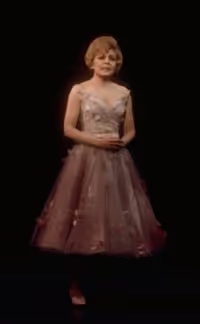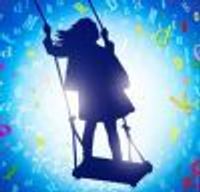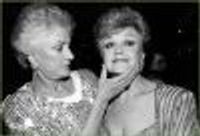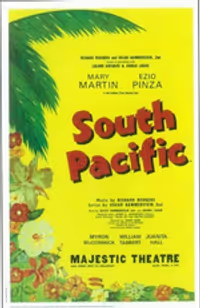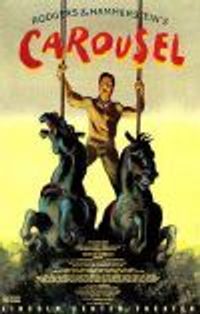CAROUSEL (2018) Previews
#500CAROUSEL (2018) Previews
Posted: 3/12/18 at 9:20am
"Theirs is a textbook example of lust at first sight- not love."
Exactly. "Love at first sight" is a sentimental myth. You can't "love" someone you don't know. You can lust for them, or be infatuated with your perception of them; but love is a mature emotion that develops. The concept of "instant love" (like instant coffee) is puerile and rather vulgar.
#501CAROUSEL (2018) Previews
Posted: 3/12/18 at 9:31am
newintown said: ""Theirs is a textbook example of lust at first sight- not love."
Exactly. "Love at first sight" is a sentimental myth. You can't "love" someone you don't know. You can lust for them, or be infatuated with your perception of them;but love is a mature emotion that develops. The concept of "instant love"(like instant coffee) is puerile and rather vulgar."
Disagree. One can indeed love someone at first sight. Because one believes that one loves someone at first sight. We project a great many myths on to what and whom we see. The concept is neither peurile nor vulgar. It's human.
Mythic and sentimental, yes. Illusory, certainly. And almost always impermanent - as is everything else in our lives.
But quite real and eminently human.
#502CAROUSEL (2018) Previews
Posted: 3/12/18 at 9:36am
"One can indeed love someone at first sight. Because one believes that one loves someone at first sight."
Believing that one loves does not mean that one really loves. Mere "believing" is not reality - many people believe all sorts of ridiculous myths - that they can fly, that they have magical control over others, that there's a god or gods taking care of them. Assuming that something is "real" merely because one believes in it is relativism at best, hokey Louise Hay-ism at worst.
#503CAROUSEL (2018) Previews
Posted: 3/12/18 at 9:38am
darquegk said: "It's much like Sweeney Todd- if you go back and read the Christopher Bond play, the structure of its script is reproduced musically down to the minutiae.http://www.samuelfrench.com/content/samples/114686/sweeneytodd-9780573015472_21399_text_5-5x8-5.pdf"
Thank you for sharing this.
#504CAROUSEL (2018) Previews
Posted: 3/12/18 at 10:42am
newintown said: ""One can indeed love someone at first sight. Because one believes that one loves someone at first sight."
Believingthat one loves does not mean that one really loves. Mere "believing" is not reality - many people believe all sorts of ridiculous myths - that they can fly, that they have magical control over others, that there's a god or gods taking care of them. Assuming that something is "real" merely because one believes in it is relativism at best, hokey Louise Hay-ism at worst."
But in art we see myth On stage we see people who believe in their own myths and so remind us of our own
#505CAROUSEL (2018) Previews
Posted: 3/12/18 at 10:42am
newintown said: ""One can indeed love someone at first sight. Because one believes that one loves someone at first sight."
Believingthat one loves does not mean that one really loves. Mere "believing" is not reality - many people believe all sorts of ridiculous myths - that they can fly, that they have magical control over others, that there's a god or gods taking care of them. Assuming that something is "real" merely because one believes in it is relativism at best, hokey Louise Hay-ism at worst."
But in art we see myth On stage we see people who believe in their own myths and so remind us of our own.
Unlike flying or having magic control over others, being "in love," whether at first sight or not, has no independent meaning beyond one's own subjective belief.
In retrospect, or when we speak of others, we might distinguish infatuation from being truly in love. But when it is our own feelings, at the time we have them, that distinction is ordinarily meaningless.
#506CAROUSEL (2018) Previews
Posted: 3/12/18 at 11:17am
"But in art we see myth"
Art is not life; art is a fictional representation of an imaginary reality. One of the problems with commercial theatre/film/TV is that too many people mistake it for reality, and then fret that their lives don't represent that fiction (or worse, believe that their lives do represent that fiction).
#507CAROUSEL (2018) Previews
Posted: 3/12/18 at 11:20am
Newintown, you are correct that many people suffer because of life expectations based on art.
But you are no doubt also aware that when we speak of whether Julie and Billy are in love, we are discussing characters in a dramatic work, Rodgers and Hammerstein's CAROUSEL.
No?
#508CAROUSEL (2018) Previews
Posted: 3/12/18 at 11:58am
"But you are no doubt also aware that when we speak of whether Julie and Billy are in love, we are discussing characters..."
Of course; but the question here is and has been "does 'love at first sight' exist?" And even though two fictional characters may believe that it does, it still doesn't. Acknowledging that fact might make Carousel (and its uber-schmaltzy source, Liliom) fractionally more interesting. However, most audiences prefer a reductive Disneyesque fairy tale to something a bit more thoughtful, which is why they sigh sentimentally when the strings kick in for "If I Loved You," and say to themselves, "Love at first sight is such a beautiful thing..."
Julie and Billy can't truly "love" each other at that moment, because they know almost nothing about each other. They may lust for each other, which is fine (except people often think that they need to add "nobility" to their lust by calling it "love"![]() , or they may be infatuated with their imaginary image of the other, formed in haste. But let's not exaggerate it.
, or they may be infatuated with their imaginary image of the other, formed in haste. But let's not exaggerate it.
#509CAROUSEL (2018) Previews
Posted: 3/12/18 at 1:05pm
One could debate the exact nature, and even objective existence, of "love" just as easily as "love at first sight." But THAT is a debate nobody wins, and not one I want to unpack here. (If four college degrees and an MA in Women's/Gender/Queer studies couldn't definitively give a yes or no to that one, neither will the assorted commentariat on a second-rate R&H revival.)
#510CAROUSEL (2018) Previews
Posted: 3/12/18 at 1:16pm
I don't know... It's difficult to have these discussions about fictional characters when the work doesn't directly confront the topic because it's really a matter of "what point does it make?" Julie believes she loves Billy. And so, she loves Billy. And later on in the show, we can see that whatever attraction they had at the top of the show is love when she sings that heartbreaker "What's the Use of Wondrin'?"
For example, in Wilde's Salome, we can't be expected to believe that Salome is truly in love with Iokonaan - she has just met him for the first time (and virtually all her dialogue centers on his appearance). However, to Salome, she loves him. There is no point in distinguishing lust from love to her because she believes it to be true to the point that she is willing to die and destory everyone around her for it.
I think newintown is searching for an overarching truth that will always be correct, while Henrik islooking for the emotional truth. Both are true, just in different ways. I'm not going to tell a friend of mine that they aren't in love, just in lust, even if I might think that. Because to them, they are in love, so what point does it make? And if this hypothetical friend were to break up or move on from their partner, maybe they would agree that they weren't truly in love, they just thought so at the time. But maybe they wouldn't. But truly, what's the use of wondrin'?
And this topic is acting as if anyone can define what love truly is, much less diagnose soemone else of it.
ScottyDoesn'tKnow2
Broadway Legend Joined: 1/22/14
#511CAROUSEL (2018) Previews
Posted: 3/12/18 at 1:34pm
I always took Julie and Billy as less of "love at first sight", which is why the song is called "If I Loved You" not "I Love You", and more as both of them having this inexplicable instant chemical attraction and both characters out-of-character acting on it. Julie is revealed to be pretty level-headed and self-sufficient as the Act II reveals as she was able to brush off her sadness and make something of her life for her sake and her daughter's. She also tends to keep to herself as "You're a Queer One, Julie Jordan" reveals but the song also reveals Julie has somewhat of a romantic temperament as well which makes it plausible Julie would just go headfirst into this relationship. Plus, it's not like today or this or mid-to-late last century. Julie probably hasn't had much opportunity meeting men as she spends almost all of her time working at the New England mill and is living a pretty supervised life (they get in trouble if they return back to the dorm late, etc.) In that case, I can easily see Julie having a spark she never had before and thinking it was too good to pass up. Teenagers and adults do that all of the time. It's also believable during this time period that they off and got married right away as opposed to just shacking up or dating because then Julie would lose every ounce of good reputation she would had and that would have been much more unbelievable given what we know of Julie and this time period.
As for Billy, he may have had a lot of experience, but it's not like he was on Tinder sleeping with a different girl every night. His experience in terms of numbers is probably considered moderate in our standards so I don't think he was THAT experienced with women to not think that instant chemistry was something unusual and special and worth exploring. He also approached Julie with curiosity at first but then the "If I Loved You" number showed that Julie seriously intrigued him and he wanted to know more. Then he's sort of pushed into a corner and doubles down on his decision to stay with Julie and we know how he's able to adapt to the more domesticated life with her. However, because Julie is someone he decided to commit to in a way he never did before and because of Julie herself, Billy does care deeply about her and feels immense shame for not being able to hold his end of the bargain especially with Julie still being so devoted and understanding no matter all the strife he gives her.
Plus, Billy dies relatively young in the relationship so that adds even more to the heightened exaggerated romanticism of their relationship when Julie and Billy look back on it.
#512CAROUSEL (2018) Previews
Posted: 3/12/18 at 1:52pm
Sally Durant Plummer wrote: "Julie believes she loves Billy. And so, she loves Billy."
By that line, Sally Durant Plummer, in Follies, loves Buddy because she says she loves Buddy. It's good to remember that a) people and characters lie about themselves, b) people and characters lie to themselves, and c) people and fictional characters often have no idea what their feelings really are, clouded as they are by various mundane neuroses.
And: "I'm not going to tell a friend of mine that they aren't in love, just in lust, even if I might think that."
I think what matters here is not what you tell your friends, but what you observe/perceive about their situation.
#513CAROUSEL (2018) Previews
Posted: 3/12/18 at 6:41pm
newintown, I would argue that the real comparable instance in Follies is not Sally's "love" for Buddy, but Sally's "love" for Ben. Sally's thoughts and feelings regarding Buddy are to fully explored by both Goldman and Sondheim for any discerning audience member to think she truly loves him. It's also pretty well set-up that Sally is aware she doesn't love Buddy - after all, she has been pining after Ben for years. Yes, "In Buddy's Eyes" is Sally lying to both Ben and herself, but I think she is aware she doesn't love Buddy, but knows that he is good to her and she can therefore be happy with her life (she isn't). However, Sally's entire character arc collapses completely if faced with the fact that she doesn't love Ben. Obviously, she loves the idea of him, because she's hasn't seen him in thirty years and they were never actually exclusive, just cheating with each other. However, Sally as a character truly believes she loves him, or else her actions throughout the play make absolutely no sense.
But to bring back Carousel, I just don't see any dialogue or lyrics to support the claims the audience is supposed to doubt that Julie and Billy are in love. I think, based on the writers of the play and the time it was written, the audience is supposed to believe that these two people truly love each other - especially in the second act after they've spent a lot of time together. If Julie had an "In Buddy's Eyes" moment for Billy - and I don't think "What's the Use of Wondrin'?" is one - I would be more apt to agree with you. I just don't see it in the text. But, for a show like Carousel, I think we can look at it both ways - they love each other or they think they love each other - and the show still works.
Back to the subject of observing love in art, I think its right to question the trope of love at first sight because it tricks people into thinking that is real. However, I do think that when doing these works with this trope intact (and there are a lot of them), we should at least attempt to look at it that way. Yes, Romeo and Juliet makes sense when it is all about that lusty, sexual energy that pulls them together. But it is even more heartbreaking, in my opinion, when we believe these two people love each other.
Maybe I just look at these things from an actor/director point of view, but to me, it really makes no difference if a character truly loves someone or only thinks they love someone - as long as this isn't brought up directly in the text. Blanche doesn't love Mitch, Sally doesn't love Ben. Julie might not love Billy, but what new exciting layer does that really bring to the show?
#514CAROUSEL (2018) Previews
Posted: 3/13/18 at 11:27pm
Very interesting conversation happening here and I'm TOTALLY interrupting here but...
SET SPOILERS BELOW
Welp, some technical hiccups tonight. Anyone who saw the show tonight (3/13) saw this too but they totally ripped the scrim up right before Act I finale (the blue one with the stars). Got caught in the upper portions of the scaffolding and it almost completely covered a very important scene up there if it wasn't for some clever maneuvering of the rail and fly system. Got it off in the nick of time, but not before making a excruciating ripping noise and a gaping hole shown in full glory in Act II. I wonder if they'll have it patched up by tomorrow or whether its something even patch-able...
blm2323
Stand-by Joined: 8/5/11
#515CAROUSEL (2018) Previews
Posted: 3/13/18 at 11:31pm
I came into this production totally blind. I’ve never seen any production of it, didn’t really know the story and really only knew the song You’ll Never Walk Alone.
For the most part I loved it! I thought the singing was beautiful and Lindsay was hilarious. And Mr. Henry - wow. Incredible voice. I love both him and Jessie as actors but didn’t feel a spark between them.
I did not care for how the role of the starkeeper was staged (the actor was wonderful). Having no other reference to how it is normally done, I can say I didn’t “get it” until the end. (I assumed as much but thought it was weird him just standing around watching). The wings have got to go.
I look forward to researching more about the history of the show!
#516CAROUSEL (2018) Previews
Posted: 3/14/18 at 1:28am
I meant to post this long ago when people were saying what they didn't like, but I completely forgot about it.
ANYWAY....
All of this talk about this revival of Carousel not being so great has actually made me fall in love with the musical. It's now one of my favorites thanks to all of you (not in a bad way though). I decided to give the 1993 London cast recording a listen and I instantly fell in love. I absolutely love the "Prologue", "You're a Queer One, Julie Jordan", "Mister Snow", "If I Loved You", and "You'll Never Walk Alone". I probably might not be able to see the show because I live far, far way in Timbuktu (I actually don't though, for those of you who know that Timbuktu is an actual place). All I have are clips and pictures. Go America! ![]()
Schmuli
Swing Joined: 3/10/18
#517CAROUSEL (2018) Previews
Posted: 3/14/18 at 8:30amIn light of the varied comments posted on this message board, I decided to see show other night for 2nd time. My observations follow. 1) Star-keeper seems out of sort, randomly appearing throughout play, without any real rhyme or reason. I’d definitely scrap/re-work this bit as it’s simply not working. 2) would be nice if investors/Director could use better prop, as in an actual small scale working Carousel. It’d be great visual and enhance audience experience, 3) chemistry between Billy and Julie is totally fine. They are each world class performers. All the “critics” on this board need to understand that the material is restrictive and only permits so much chemistry-building, 4) Choreography and actual Ballet in Louise’s Act Two scene is world class——> she is elegance personified, 5) Yes, play is somewhat dated but topics of spousal/child abuse are unfortunately as relevant today as ever. Play forces audience to squirm a bit and confront the fact that it’s still out there today often hidden from the public eye, and 6) singing by all is outstanding, particularly Messrs Henry and Snow and Ms Mendez and Ms Fleming. All in all, it’s fantastic to see R&H’s favorite work brought back to life. There’s still a month before it’s official opening and with some minor tweaks, this revival should be a big success. Go see it. It’s well worth it.
#518CAROUSEL (2018) Previews
Posted: 3/14/18 at 11:06am
saw it last night. as a longtime Carousel fan I thought they botched it, for many of the reasons already mentioned in this thread. the dancing was the only high point.
I was also thinking about how R&H kind of wrote themselves into a corner with the character of Louise-- it seems almost impossible to cast someone who's a strong enough dancer who can also nail the scenes with Billy & Julie, which should be the emotional climax of Act 2. all the Louises I've seen have been beautiful dancers but somewhat lacking in the acting department, so those scenes never have the impact they should.
#519CAROUSEL (2018) Previews
Posted: 3/14/18 at 11:11am
Schmuli said: "3) chemistry between Billy and Julie is totally fine. They are each world class performers. All the “critics” on this board need to understand that the material is restrictive and only permits so much chemistry-building"
Disagree with you on that, Schmuli. While I wasn't a fan of the last revival, Sally Murphy and Michael Hayden had impressive chemistry. And from the clips I have seen, so did Laura Osnes and Stephen Pasquale at the Lyric.
#521CAROUSEL (2018) Previews
Posted: 3/14/18 at 1:33pm
https://mobile.twitter.com/BazBam/status/972623395669069824
Here's a production photo. First one that I've seen of this production.
Schmuli
Swing Joined: 3/10/18
#522CAROUSEL (2018) Previews
Posted: 3/14/18 at 1:59pmis that the best you can come up with? Tell me where you are performing.... hopefully I can use those words to describe you. (Somehow I think that’ll be very very unlikely....oops, I used “very” 2X. Sorry
Jarethan
Broadway Legend Joined: 2/10/11
#523CAROUSEL (2018) Previews
Posted: 3/14/18 at 2:53pm
Schmuli said: "In light of the varied comments posted on this message board, I decided to see show other night for 2nd time. My observations follow. 1) Star-keeper seems out of sort, randomly appearing throughout play, without any real rhyme or reason. I’d definitely scrap/re-work this bit as it’s simply not working. 2) would be nice if investors/Director could use better prop, as in an actual small scale working Carousel. It’d be great visual and enhance audience experience, 3) chemistry between Billy and Julie is totally fine. They are each world class performers. All the “critics” on this board need to understand that the material is restrictive and only permits so much chemistry-building, 4) Choreography and actual Ballet in Louise’s Act Two scene is world class——> she is elegance personified, 5) Yes, play is somewhat dated but topics of spousal/child abuse are unfortunately as relevant today as ever. Play forces audience to squirm a bit and confront the fact that it’s still out there today often hidden from the public eye, and 6) singing by all is outstanding, particularly Messrs Henry and Snow and Ms Mendez and Ms Fleming. All in all, it’s fantastic to see R&H’s favorite work brought back to life. There’s still a month before it’s official opening and with some minor tweaks, this revival should be a big success. Go see it. It’s well worth it."
In what parallel universe is Carousel the most loved of R&H musicals???? I have assumed that you are a shill (SIC) for the show, based on some of your comments and the date you joined this board. You need to tone it down, though.
1. The Sound of Music is the third highest grossing movie of all-time, adjusted for inflation, falling behind only Gone With the Wind and Star Wars. I assume that you have heard of those two. It is admittedly the movie version, but is pretty faithful. The original Broadway production ran twice as long as Carousel.
2. The King and I, which I would argue is probably the most loved on the stage, also ran considerably longer than the original production of Carousel. It has been revived so many times with great success that I have lost count.
3. Oklahoma -- which I HATE -- ran three times longer than Carousel in its original run, has had two major revivals that ran for close to a year, and is touring the country constantly.
4. South Pacific ran 2 1/2 times longer than Carouse in its original run. The movie version, which was not good, was the second biggest grossing movie in the year that it was released. The recent revival was a huge critical and audience success.
5. And then there is Carousel, admittedly a major musical, but a show that has always IMO had more than its share of boring parts among the goosebumps moments, e.g., If I Loved You, You'll Never Walk Alone. I also feel personally that it has more 'filler' songs than any of the other 5.
I love parts of Carousel, but nothing compared to my love of #1, #2 and #4. I have no way of proving it, but I would guess that I have a majority opinion here.
#524CAROUSEL (2018) Previews
Posted: 3/14/18 at 3:52pmJarethan, to be fair, Schmuli said “R&H’s favorite work,” which I have often heard that it was their personal favorite. At least I recall it being Rodgers’ favorite of his own shows, not certain about Hammerstein.
Videos






